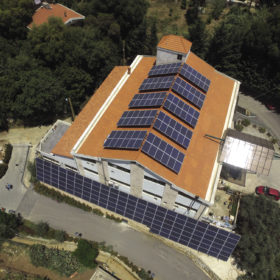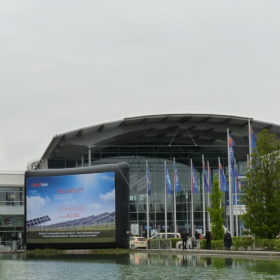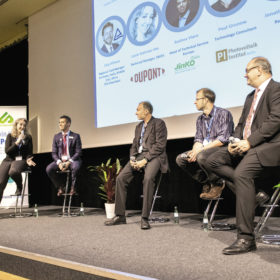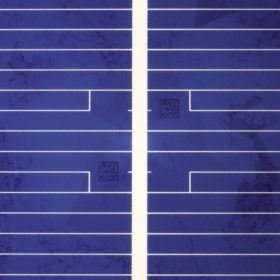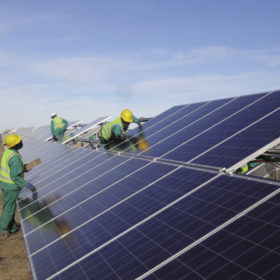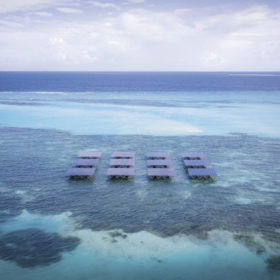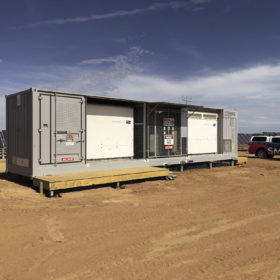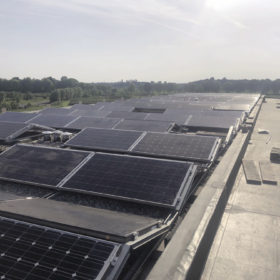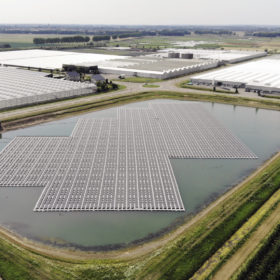What Lebanon’s default means for PV
Lebanon failed to make a bond payment of $1.2 billion due on March 9 – the first sovereign default in the country’s history. pv magazine looks at how Lebanon’s debt troubles are now starting to affect the development of renewable energy.
The show must go on… paper
Each year, Intersolar and the wider smarter E Europe exhibition offer a vital health check for the industry, not to mention the chance for players to come together over a couple of world-famous Bavarian beers. This year though, the show is among the huge number of events worldwide to have been canceled or postponed due to the ongoing Covid-19 pandemic. Sad to miss out on our usual team trip to Munich, pv magazine reached out to the show’s organizers, as well as a few key exhibitors, for a look at what might have been.
Roundtables Europe 2020: expanded program, global attendees, more opportunities to connect
With solar industry events canceled or postponed globally, pv magazine made the decision to take its successful Roundtables Europe program online in 2020. Quality discussions and discussions on quality have long been a part of pv magazine Roundtables and this was unchanged in 2020. What’s new was the addition of three new sessions focused on asset management, sustainability and post-Covid-19 market insights.
Pirates of the PV industry
Product piracy is a well-known threat in many industries, and in solar the risk posed by poor quality products from disreputable manufacturers making their way onto rooftops and other PV installations should not be underestimated. With manufacturers investing in solutions to protect against inferior products bearing their logo, pv magazine looks at the size of the problem.
40 maybe the new 20
Until recently, PV plants were designed and developed to last as long as the incentive schemes underpinning their business models – feed-in tariff regimes and green certificate programs, in particular. Such schemes generally provided for a period of 20 to 25 years and the horizon of developer business models was set to match this. But as solar has matured and costs have fallen, longer operational periods are becoming the norm, argues Christophe Campistron, a partner at Everoze.
Sink or swim
The impressive progress made by offshore wind arrays may be attracting a new group of PV developers looking to leave the constraints of the roof and free field behind. And while saltwater, wind and waves are no friend of PV, progress is being made in proving the potential applications.
Collaborative digital fixes for the energy transition
Straddling two state borders, the West Murray region in southeastern Australia has become a microcosm of technical challenges that can plague the energy transition. Faced with serious curtailment of solar farms in this electrically remote region, a remarkable inverter-based technical feat may have changed the game.
‘We will need a solution’
The Circusol project was established in August 2018 with the aim of fostering business models that demonstrate the circular economy within the solar industry. Tom Rommens from the Flemish sustainability research group Vito serves as the Circusol coordinator. He reports that with a wave of PV products at end of life forming, Circusol’s five demonstration projects are providing insights into how circular-economy principles can be applied to PV.
Inverted sustainability
Sustainability is undoubtedly the prime motive for the very existence of the solar industry. After having rolled out some 600 GW globally, there are new challenges ahead. It is not enough to simply surpass fossil fuels in terms of environmental outcomes, but efforts have to be made to make solar sustainable – period. In the EU, a range of new projects and legislative acts determine the direction, with some suppliers of solar products already undergoing the process of identifying the sustainability hotspots.
Shadow boxing
The amount of non-uniform shading an array will experience determines the technology choices that can be made. However, it can be complicated to formulate more general rules for when to use what type of technology. Most would agree that module-level power electronics are better at handling non-uniform shading, but how do they handle the sun? A recently promoted study brought the discussion into sharp relief.
